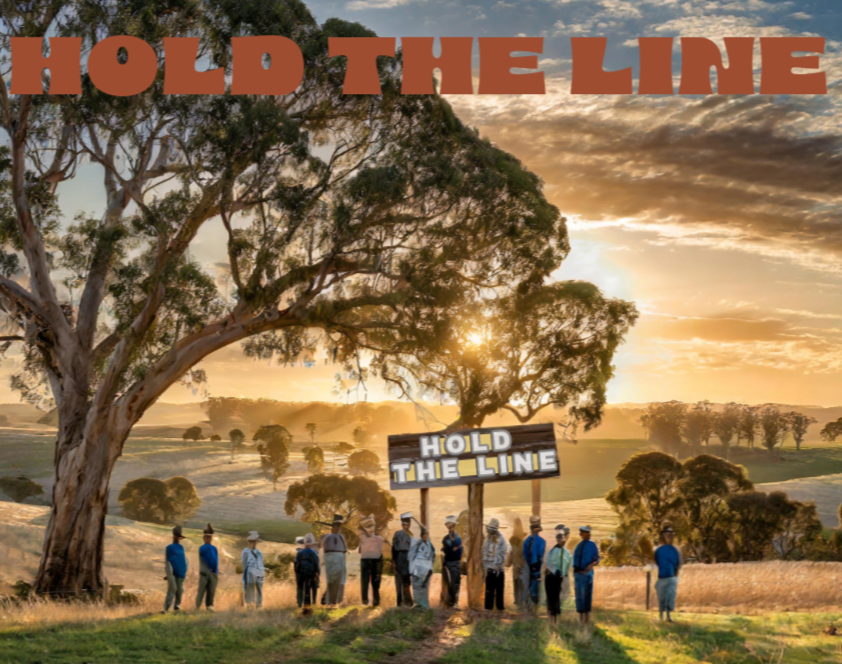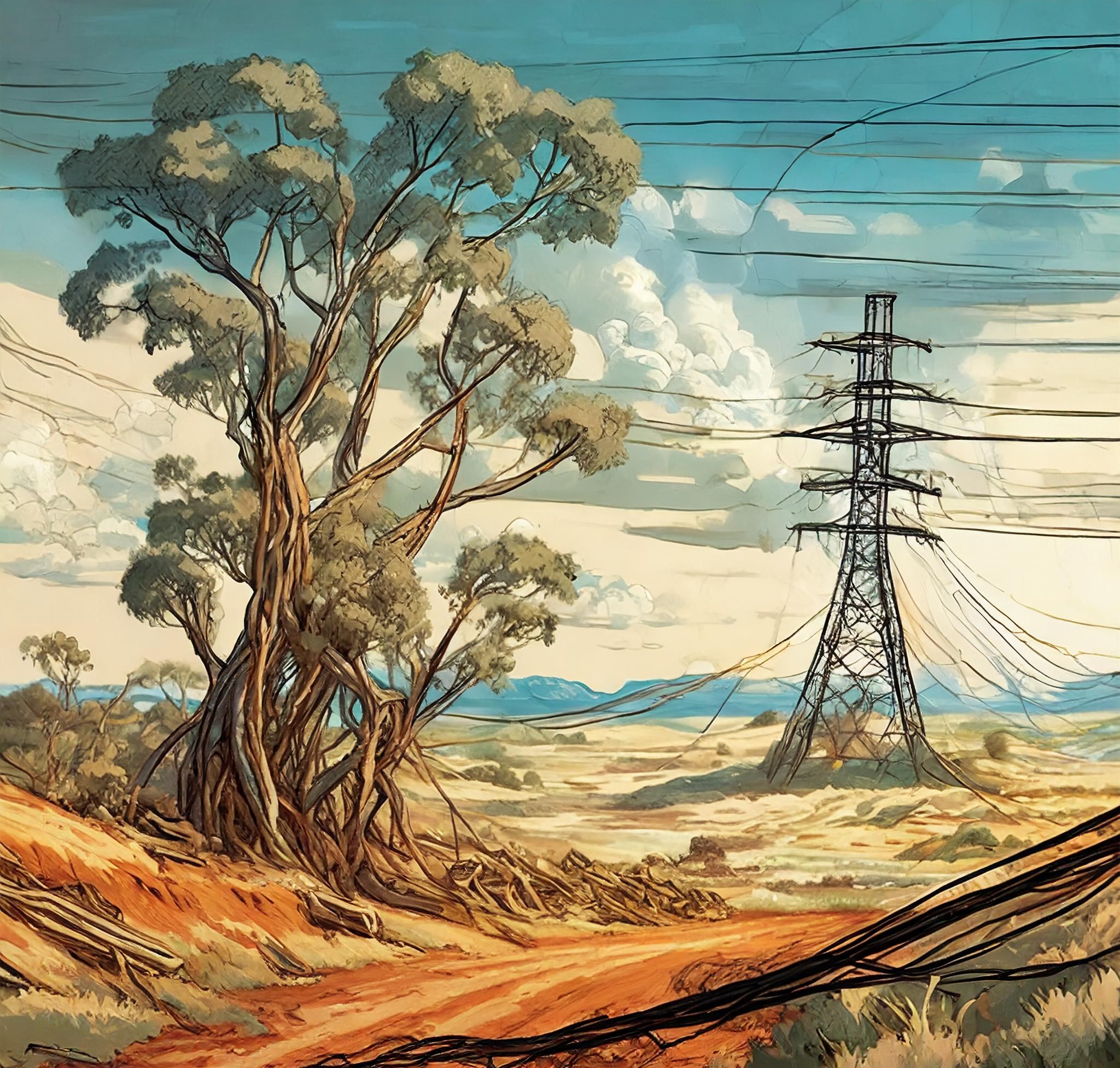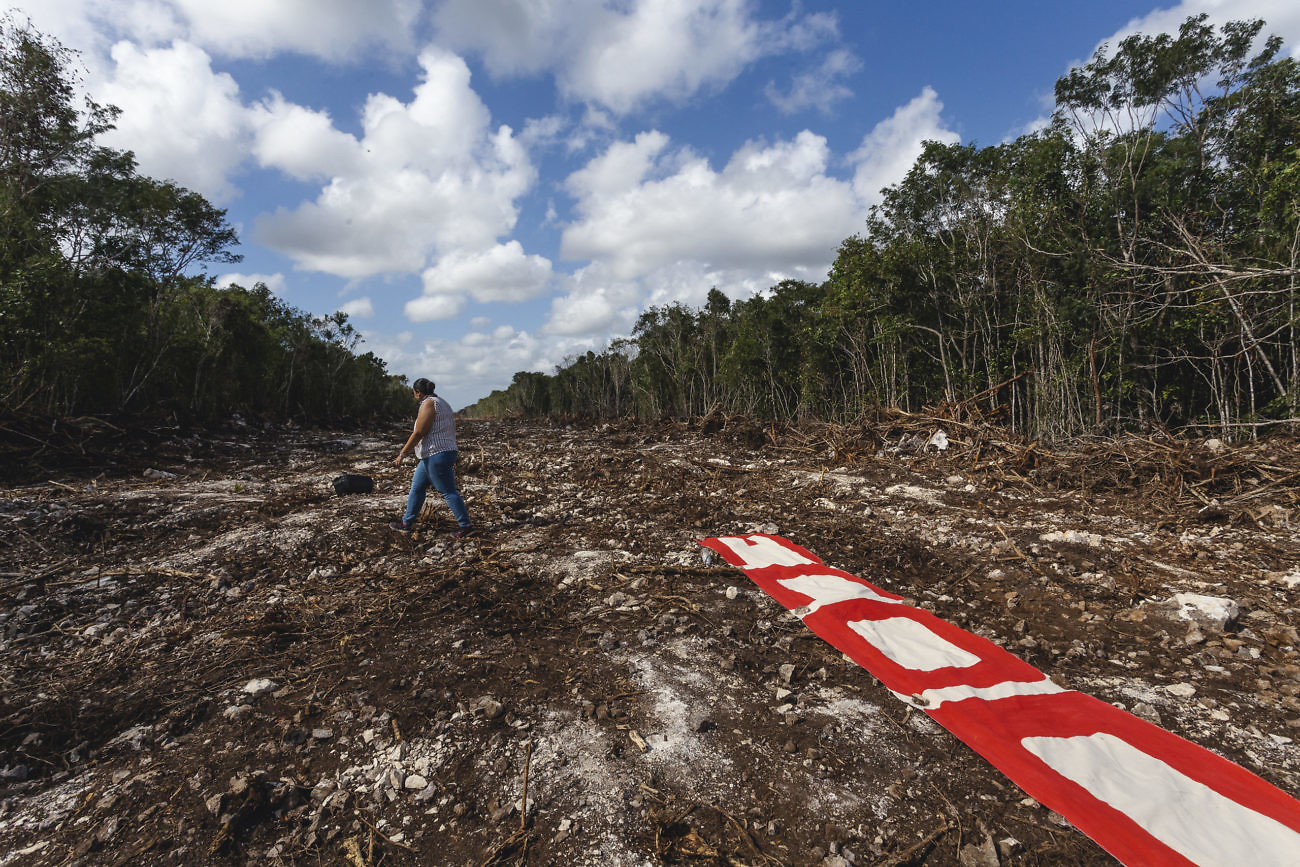
Stand Strong Against The Proposed Destructive Transmission Line Projects
In this crucial battle against proposed transmission line projects, we stand alongside landholders and our community at the forefront of a pivotal struggle. Like soldiers on the front lines, we must hold firm against encroachment, steadfastly protecting our land, our community, our environment, and our way of life.
The phrase “hold the line” embodies the essence of military tactics, where soldiers maintain a defensive stance, refusing to surrender ground to the enemy. Similarly, we, as landholders facing the threat of transmission lines, must adopt this unwavering mindset, steadfastly resisting outside forces that seek to disrupt our livelihoods.
Unity is our greatest weapon in this fight. Landholders must unite, joining forces with fellow community members to form an indomitable front against the project. Just as soldiers rely on camaraderie and mutual support to bolster their defences, we must stand shoulder to shoulder, resolute in our determination to protect what is rightfully ours.
We will not succumb to the ongoing aggressive and bullying actions of AusNet, AEMO, and the State Government.
HOLD THE LINE – Do Not Sign Any Land Access Agreements and/or Land Option Agreements.
HOLD THE LINE – Do Not Allow Any Access onto Your Land. Under existing laws, AusNet, nor AEMO, nor their contractors have rights to access your land without your consent.
Holding the line transcends mere physical action; it is a testament to our resilience and unwavering resolve. It means weathering the storms of uncertainty and adversity, refusing to be swayed by doubts or fears. It means standing tall in the face of opposition, steadfast in the belief that justice will prevail.
Despite the challenges we face, we must draw strength from the knowledge that we are not alone in this fight. We are part of a longstanding tradition of resistance, where communities have rallied together to defend their land and way of life against external threats.
Just as previous generations have held the line against encroachment, so too must we uphold this legacy today. We are the guardians of the land, entrusted with its stewardship for future generations. To falter now would betray not only our own legacy but also that of those who came before us.
To all landholders and community members facing the specter of transmission line projects, we say this: HOLD THE LINE. Hold it with all your strength and determination. Stand firm against the tide of progress that threatens to wash away everything we hold dear. And know that as we hold the line, we do so not just for ourselves but for the generations yet to come.
In solidarity, Landholders and Communities of Western Victoria

Ecocide Unveiled: The Devastating Toll of High Voltage Electricity Transmission Infrastructure on Victorian Environment
Amidst the race to meet rising energy demands, the environmental fallout of high voltage electricity overhead transmission towers and lines has reached a critical juncture. Beyond conventional discourse lies an undeniable truth: these projects are contributing to ecocide. This article delves into the catastrophic environmental impact, with a focus on how the Victorian State government’s endorsement of such projects implicates it in ecocide.
1. Irreversible Biodiversity Loss: The construction of high voltage transmission infrastructure in Victoria leads to the irreversible destruction of habitats, driving native species to extinction. Ecosystems that have evolved over millennia are being dismantled, driving numerous plant and animal species native to the region to the brink of extinction. The Victorian State government, through its endorsement of these projects, becomes complicit in the ecocide, contributing to the degradation of unique and fragile ecosystems that play a crucial role in maintaining the balance of the state’s environment.
2. Amplified Climate Change Impact: The carbon footprint of these projects exacerbates global warming, directly impacting Victoria. Despite transitioning to renewables, the environmental cost of supporting these initiatives must be scrutinised. The government’s endorsement may inadvertently worsen climate change, perpetuating ecocide. As the state strives to transition towards renewable energy sources, it becomes imperative to scrutinize the environmental cost of the infrastructure supporting these endeavours.
3. Disproportionate Impact on Communities: These projects disproportionately affect local communities, worsening socio-economic disparities. By endorsing them, the government risks dispossessing residents of their land and livelihoods, deepening injustice within the State. The destruction of ecosystems essential for Victorian amplifies the ethical dimension of the ecocide argument and implicates the government in these injustices.
4. Cumulative Environmental Degradation: While individual projects seem small, their cumulative impact degrades Victoria’s environment. The government’s endorsement exacerbates this trend, pushing ecosystems past their tipping points. The relentless expansion of these infrastructures within the State’s borders contributes to a cumulative degradation of the Victorian environment, pushing ecosystems past their tipping points. By endorsing and permitting these projects, the Victorian State government is, therefore, playing an active role in the trajectory of this ecocide, exacerbating the global crisis and contributing to the degradation of the unique Victorian landscape.
5. Urgent Need for Regulatory Reform: Comprehensive regulatory reform is vital to address impending ecocide. Stricter assessments and sustainable practices must guide project planning. The government must be held accountable for its role in committing ecocide, necessitating a revaluation of energy priorities. To address the impending ecocide associated with high voltage electricity overhead transmission towers and lines within Victoria, there is a pressing need for comprehensive regulatory reform. Stricter environmental impact assessments, transparent decision-making processes, and the integration of sustainable practices must become integral to the planning and execution of such projects within the state.
The evidence is irrefutable: new overhead high voltage electricity transmission towers and lines on Victorian soil are an accomplice in the ongoing ecocide, wreaking havoc on ecosystems, biodiversity, and local communities. The endorsement of these projects by the Victorian State government is a direct commitment to ecocide within its borders, contributing to the degradation of unique ecosystems and amplifying socio-economic disparities. The urgency of the ecological emergency within Victoria demands immediate regulatory reform, pushing the state towards a sustainable future that prioritizes the well-being of its environment and residents over short-term energy gains.
